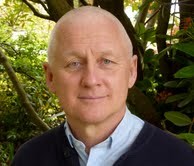…. or perhaps it is all just a generational thing.
There certainly appears to have been a significant generational divide in Britain’s vote to leave the EU.
Here’s the percentages according to age of those who voted to “Remain”:
75% aged 18-24
56% aged 25-49
44% aged 50-64
39% aged 65+
75% of under 25 year-olds who showed up at the polls voted to stay in the EU. 61% of voters over 65 who voted chose to leave.
The divide is pretty stark.
One young Twitter user summed up the feeling of the younger generation saying:
"I’m so angry. A generation given everything: free education, golden pensions, social mobility, have voted to strip my generation’s future."
A commenter on the Financial Times website expressed similar anger writing:
"The younger generation has lost the right to live and work in 27 other countries. We will never know the full extent of lost opportunities, friendships, marriages and experiences we will be denied. Freedom of movement was taken away by our parents, uncles and grandparents in a parting blow to a generation that was already drowning in the debts of its predecessors."
Of course the percentages beg the question of how many youth actually voted compared with the number of seniors who showed up at the polls.
But, whatever, the actual numbers, it is clear that the percentage of the young who did vote was overwhelmingly in favour of staying, while the majority of older voters favoured leaving.
Why did my generation want to depart from an international expression of community that transcends political boundaries and connects people across cultural divides?
I am intrigued by the Twitter post of @RebeccaW who wrote:
“Our country’s fate has been decided by people longing for a past that never existed, & they’ve created a future that’s bleak” #NotInMyName
Is my generation “longing for a past that never existed”?
Those of us born in the 50’s grew up with a great sense of privilege and entitlement. We had been taught we could do anything we set our minds to and that the only obstacles in our way were lack of discipline and laziness. If we worked hard, we knew we could achieve anything we set our minds to.
And we did accomplish many things. We excelled professionally and we prospered financially. But, it turns out, we may have propped our ladder against a shaky wall. With all of our achievements, we have not achieved much sense of internal well-being.
A 2013 OECD study estimates that in Canada, surely one of the most comfortable and privileged nations on earth, 9% of the population takes some form of prescription antidepressant
My generation has failed to create a society in which, in spite of substantial material comfort, there is a prevailing sense of well-being. So, rather than look at ourselves and ask how we have failed, we appear determined to seek an external cause for our unhappiness. We are looking for the enemy out there, instead of acknowledging the malady within.
We grew up believing that, when we had achieved financial security and had accumulated all the accolades the world has to offer, we would be happy and content. But it has not worked. Happiness and contentment are not gifts bestowed by financial well-being or spectacular achievement.
Jesus said,
“Blessed are the poor.”(Matthew 5:3)
He was not extolling the virtues of material poverty. But he was suggesting that it is only as we acknowledge the poverty of all external circumstances that we will discover true wealth.
Brexit may cause Britain to turn its back on the EU. But, if my generation hopes that by creating a new political reality, any kind of lasting spiritual well-being will be accomplished, we are simply chasing one more empty illusion. Hopefully, a younger generation will be wiser and seek within that which can never be discovered in the time-bound material realm.
 Christopher Page is the rector of St. Philip Anglican Church in Oak Bay, and the Archdeacon of Tolmie in the Anglican Diocese of B.C. He writes regularly on his blog: www.inaspaciousplace.wordpress.com
Christopher Page is the rector of St. Philip Anglican Church in Oak Bay, and the Archdeacon of Tolmie in the Anglican Diocese of B.C. He writes regularly on his blog: www.inaspaciousplace.wordpress.com
You can read more articles on our interfaith blog Spiritually Speaking HERE


